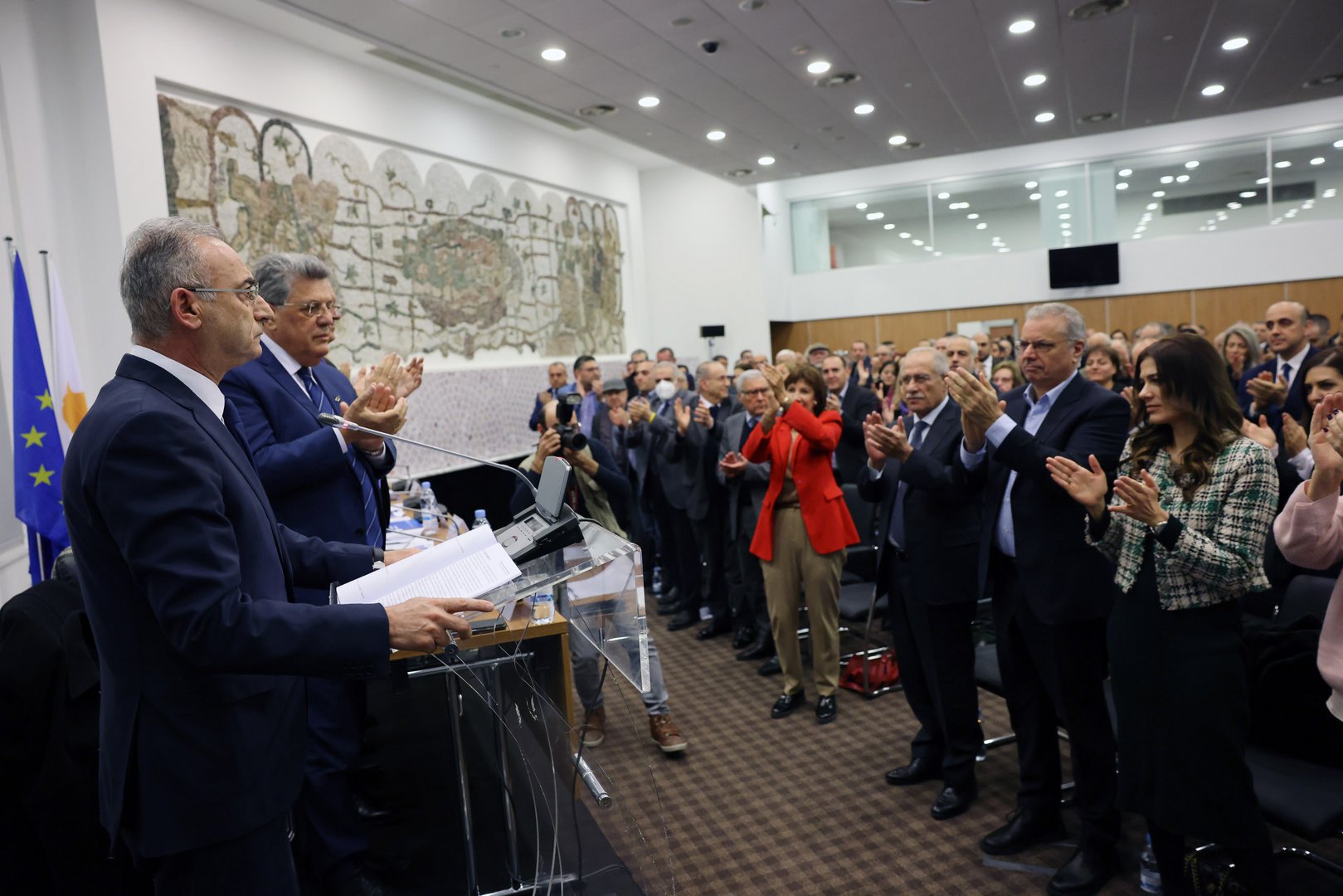Everyone who wanted to speak was given a say at the meeting of the Disy political bureau that went on until the early hours of Wednesday, despite the fact that there was little disagreement among those attending. In fact, the members, with one or two exceptions, were united on the main proposal for not backing either candidate in Sunday’s run-off for the presidential elections.
Six of the 250-plus members backed a motion for supporting Andreas Mavroyiannis and two a motion for supporting Nicos Christodoulides. The resolution approved was for “non-participation of Disy in whatever government formation emerges after the second round.” The party “would assume its responsibility as prudent opposition of the country,” declaring its unwavering priorities as “the settlement of the Cyprus problem, the European orientation of the country, the deepening of relations with states of the regions and the US, fiscal discipline and implementation of the Cyprus Tomorrow plan.”
The most eloquent justification for the decision was offered by finance minister Constantinos Petrides, who said that “Disy was not, is not and must not be reduced to a party that is an election regulator, or an opportunistic party the existence of which depends on its participation in power for some to be able to enjoy its transient spoils.” This role should be left to those “which know how to do this better and on which the reason of their existence depends.”
This was the rational analysis of Disy’s predicament and it received a big cheer, but it was clear that the main emotion pervading the conference centre was anger. Anger at Christodoulides, who had shown contempt for his party and acted opportunistically in securing the backing of Diko, Edek and Dipa to defeat the Disy candidate. Shouts of ‘traitor’ and ‘apostate’ were repeatedly heard in the auditorium, while Christodoulides supporter, Prodromos Prodromou, the education minister was jeered and abused by youths gathered outside.
Perhaps this was what President Anastasiades feared and decided not to attend and address the meeting, a few hours before it was due to start. He had been unaware of the anger among the Disy voters, otherwise he would not have called the Disy leadership to his office on Sunday night to urge it to back Christodoulides in the run-off. When he realised how the party voters felt, he changed tack, co-signing the resolution prepared by the Disy leader Averof Neophytou for a vote by conscience. It did not even contain a subtle push in the direction of Christodoulides. If anything, it set priorities that Christodoulides, with his close links to Moscow, did not share.
Disy’s political bureau took the right decision in refusing to be lured into any alliance by the promise of a couple of ministries. It has an important role to play as the main opposition party over the next five years, a role it has performed very well, in the past, serving our democracy. As for the more immediate concern of Sunday’s vote, it remains to be seen whether Disy members will choose to punish the candidate they regard as a party traitor.







Click here to change your cookie preferences